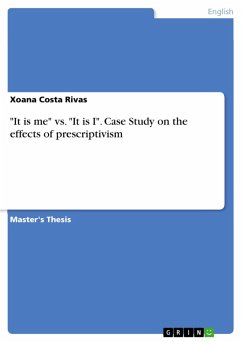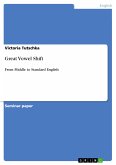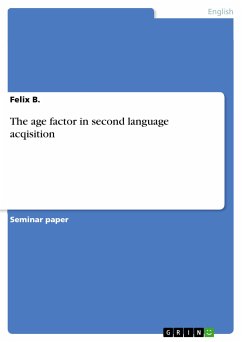Seminar paper from the year 2012 in the subject English Language and Literature Studies - Linguistics, grade: 1,3, University of Potsdam, course: Seminar Middle English, language: English, abstract: 1. Introduction I started learning English as my first foreign language at the age of eight, followed by French as the second at the age of eleven. Soon, I recognised similarities of the vocabulary of the two languages, not knowing why, since the grammatical structure and the declension of nouns etc. was obviously different. Of course, I was too young to think it over. However, during my studies of English linguistics I was taught the basic knowledge about the relation between French and English. Since I had learned that most of the words I knew from French were also borrowed into English, I was particularly interested in the process of this phenomenon. Which events and developments were responsible for the adoption of so many words? The Middle English period was characterised by many changes- both in its social and linguistic situation. In 1066 the Norman Conquest occurred marking the starting point of the most influencing era throughout the history of the English language. After the Conquest there were two main waves of immigration. Firstly, French upper class people migrated to the occupied British Island bringing their language with them, and English lost its status as the official language. Secondly, about two hundred years later, those French people lost their connection to the continent, when king John lost Normandy, and English was about to reinforce again. However, soon new French invasions occurred and a new French variety was brought to the Island which led to an increasing number of new vocabulary and the English language had to be enforced a second time. (Baugh, 1991) This raises the question why French prevailed in the English language that persistently, although English had been reinforced and had already gained prestige again. This is the matter of interest in this research paper which is concerned with the history of the English language between 1066 and 1400. Generally, it deals with the French influence on the English language, but focusses especially on the impact of Central French, which took place in the second phase (1250- 1500) where most of the vocabulary was adopted.
Dieser Download kann aus rechtlichen Gründen nur mit Rechnungsadresse in A, B, BG, CY, CZ, D, DK, EW, E, FIN, F, GR, HR, H, IRL, I, LT, L, LR, M, NL, PL, P, R, S, SLO, SK ausgeliefert werden.









